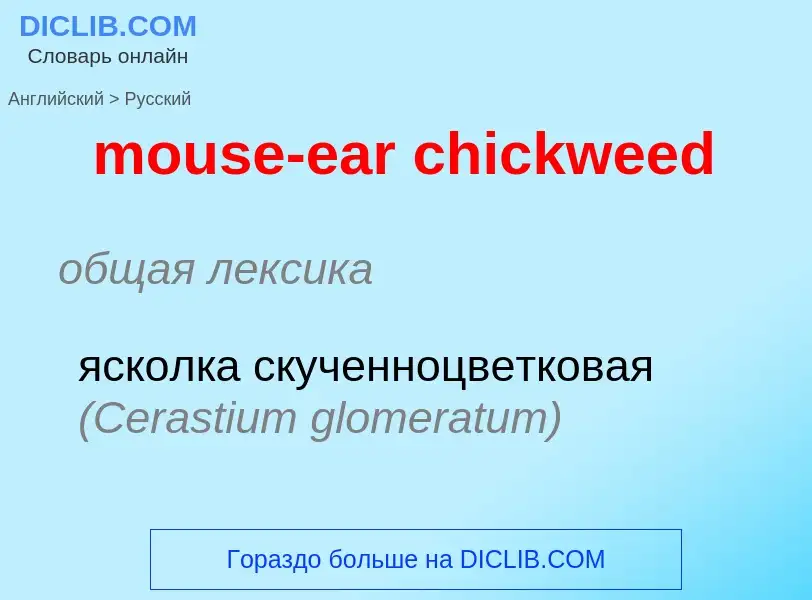Vertaling en analyse van woorden door kunstmatige intelligentie ChatGPT
Op deze pagina kunt u een gedetailleerde analyse krijgen van een woord of zin, geproduceerd met behulp van de beste kunstmatige intelligentietechnologie tot nu toe:
- hoe het woord wordt gebruikt
- gebruiksfrequentie
- het wordt vaker gebruikt in mondelinge of schriftelijke toespraken
- opties voor woordvertaling
- Gebruiksvoorbeelden (meerdere zinnen met vertaling)
- etymologie
mouse-ear chickweed - vertaling naar russisch
общая лексика
ясколка скученноцветковая (Cerastium glomeratum)
['mausiə]
общая лексика
сушеница топяная (Gnaphalium uliginosum)
костенец (Asplenium)
существительное
ботаника
костенец (Hieracium gen.)
общая лексика
ясколка полевая (Cerastium arvense)
Definitie
Wikipedia
Cerastium is a genus of annual, winter annual, or perennial plants belonging to the family Caryophyllaceae. They are commonly called mouse-ear chickweed. Species are found nearly worldwide but the greatest concentration is in the northern temperate regions. There are about 200 species. A number are common weeds in fields and on disturbed ground.
Cerastium species are used as food plants by the larvae of some Lepidoptera species including Coleophora chalcogrammella (which feeds exclusively on Cerastium arvense) and Coleophora striatipennella (which has been recorded on Cerastium fontanum).

![''[[Cerastium tolucense]]'' ''[[Cerastium tolucense]]''](https://commons.wikimedia.org/wiki/Special:FilePath/Cerastium tolucense.jpg?width=200)
![''[[Cerastium uniflorum]]'' ''[[Cerastium uniflorum]]''](https://commons.wikimedia.org/wiki/Special:FilePath/Cerastium uniflorum.jpg?width=200)

